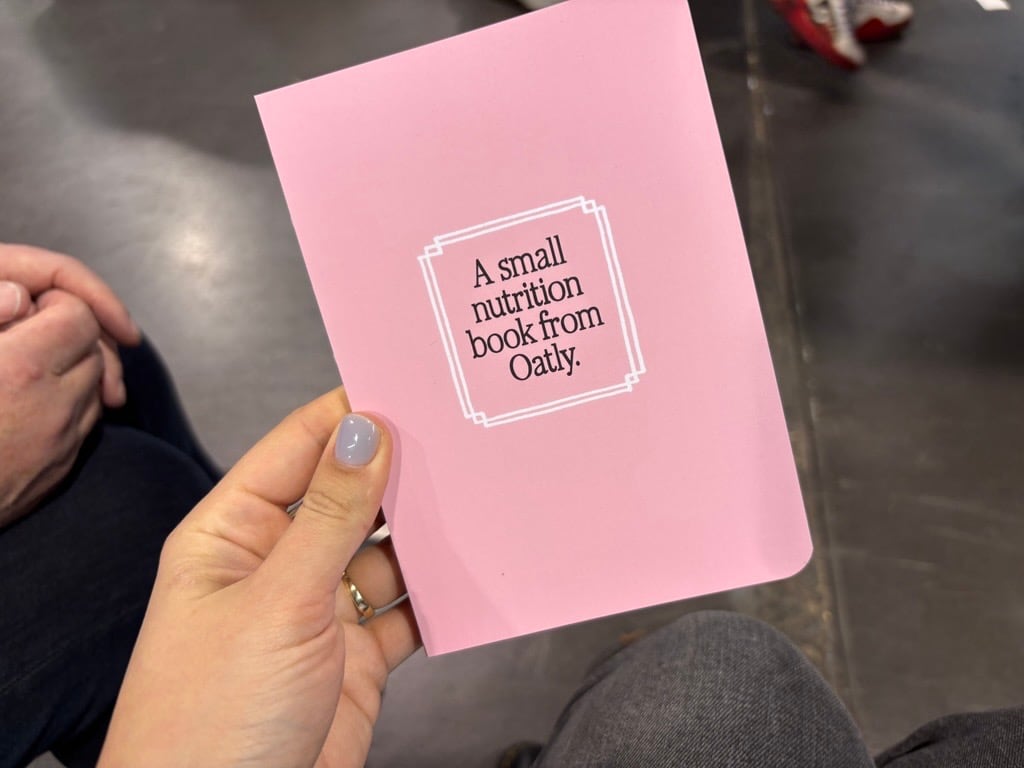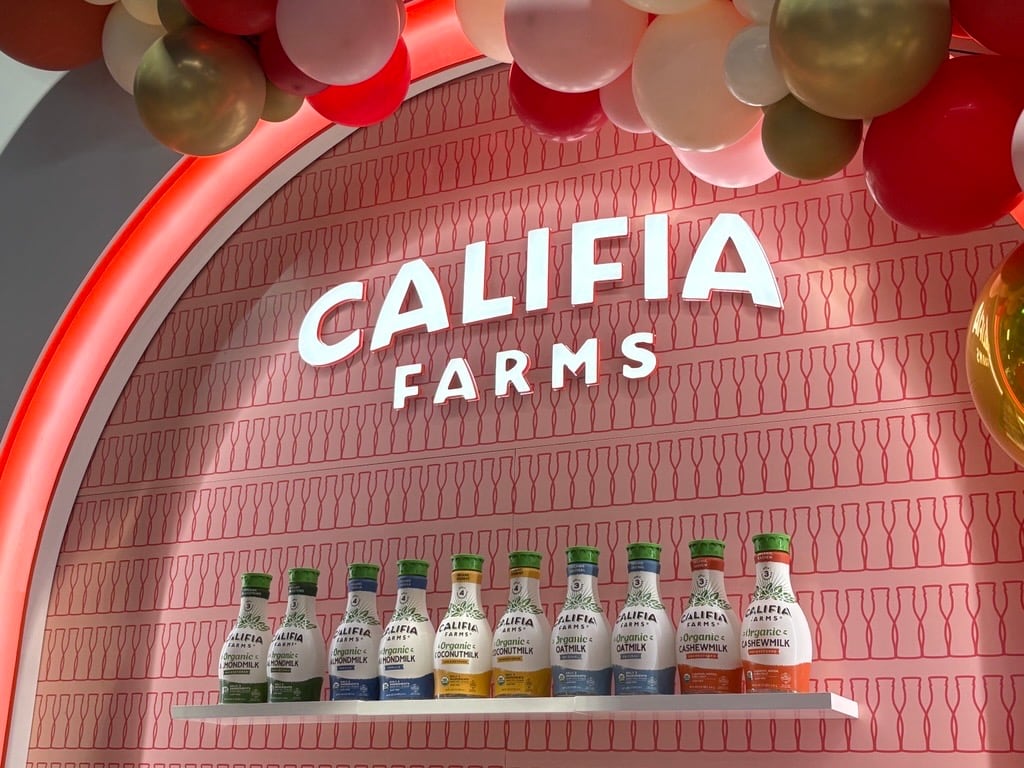With a slump in sales of plant-based milk in the US, you might expect Oatly’s North American chief to be feeling anxious.
But that’s not the vibe of German-born Helge Weitz. With a career spanning nearly two decades in CPG, Weitz centers his leadership around empathy for his team and the environment, coupled with a curiosity for technical expertise that drives Oatly’s innovation.
The division is navigating a challenging plant-based milk market with a clear strategy: lead with taste, foster creativity and champion sustainability. Despite a cooling in the category and rising consumer concerns about ultra-processed foods (UPFs), the Swedish oatmilk brand remains focused on innovation and authentic messaging.
Taste-centric innovation
Taste is at the heart of Oatly’s growth plan. The company has “grown up” with coffee, says Weitz, which has driven product development around coffee trends like matcha, iced coffee and flavored drinks. This collaboration led to the creation of Barista Edition Oatmilk, designed for foaming and texture similar to a coffeehouse.
Oatly’s portfolio – from hot cocoa and chocolate milk to half & half and its “super basic” 4-Ingredient milk – reflects the brand’s commitment to technical innovation.
Its patented oat base, developed by its in-house R&D, ensures products deliver on taste, texture and nutrition, Weitz explains.
“The creativity you need in this industry is sometimes underestimated,” he notes, emphasizing the blend of science and artistry behind Oatly’s R&D.
From supplier to CPG
Oatly was founded in 1994 in Sweden by food scientist Rickard Öste and his brother Björn Öste with the intention of creating a lactose tolerant and sustainable alternative to dairy. Oatly’s first oat milk was developed from a patented enzyme technology to extract nutrients from oats to create a liquid alternative to cow’s milk. After focusing on supplying its oat milk to food manufacturers, Oatly officially launched to consumers in 2001.
Navigating market shifts
The company reported 7.1% global revenue growth in Q3 2024, reaching $223m, though North America declined 10.1% due to reduced business with its largest foodservice customer. This highlights the need for channel diversification and consumer trust, especially as plant-based milk demand cools and UPF concerns rise.
The company also reduced its R&D expenses from $6.3m to $4.5m in Q3 compared to $10.9m in Q3 2024. The firm attributed the decrease to new product launches in North America, which include Oatly’s creamers, 4-Ingredient and Unsweetened Oatmilks.
Oatly’s focus on streamlined innovation comes at a time when the plant-based category has faced increased scrutiny over UPFs – a factor contributing to overall category sales declines. Consumers are questioning what qualifies as “healthy” and whether plant-based alternatives fit that definition, creating pressure for brands to clarify their positioning.
To address misconceptions, Oatly launched its Small Nutrition Book, educating consumers on the difference between nutrient-fortified foods and UPFs – part of its broader transparency strategy.
Welcome to the Up the Food Chain series, interviews straight from the c-suite
Up the Food Chain is FoodNavigator's exclusive interview series spotlighting the visionaries at the top of the global food and drink industry. Each interview dives into the personal journeys, leadership insights and bold ideas shaping the future of food and drink - straight from the c-suite.
Check out past interviews below:
EFSA's new boss: Why faster risk assessments are my guiding light: The newly appointed Dr Nikolaus Kriz has ambitions to optimize European food safety.
Bel's Venture Chief Caroline Sorlin on getting precision fermentation right: Bel Group plans on succeeding in animal-free dairy where others have fail ed. For Chief Venture Officer Caroline
Sorlin, who leads on Bel's food-tech partnerships, timing is key.
Yoplait UK boss Antoine Hours on dairy ambitions and market shifts: Yoplait UK General Manager Antoine Hours outlines the brand's st rategy to expand beyond its keys' yogurt stronghold, tapping into the booming demand for high-protein and drinkable formats, while navigating inflation, sugar reformulation and sustainability.
Authenticity in sustainability
Oatly is recognized as the first and only food and beverage brand to qualify as a Climate Solutions Company under the Exponential Roadmap Initiative. To meet this standard, 90% of revenue must come from products that significantly reduce emissions compared to conventional alternatives, alongside transparent net-zero targets.
Earlier this year, Oatly partnered with Futerra and Oxford Net Zero to pilot the Spheres of Influence model, which measures greenhouse gas impact beyond its direct value chain.
“Every company needs to define its purpose and how it can help the environment. For us, it’s making the switch from resource-intensive dairy to oat milk as easy as possible – through taste,” says Weitz.
The leader behind the strategy
Weitz began his career in 2007 in his native Germany with Mars and Danone Waters before a transformative sabbatical in Canada in 2012, where working in restaurant kitchens gave him a fresh perspective on food, teamwork and leadership.
“If you work in a kitchen, you need to be super focused. You can’t let your team down for 10 minutes. If you fail, then the whole team fails,” he recalls.
Since joining Oatly in 2017 and becoming North American president in 2024, Weitz has focused on creating an environment where innovation thrives:
“We have people who know more about oats than anyone else in the world. That’s why we’re confident about the future of plant-based – and our ability to create the next chapter.”




